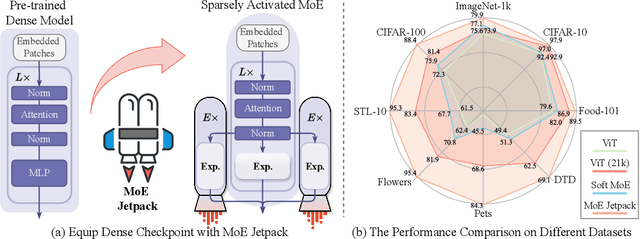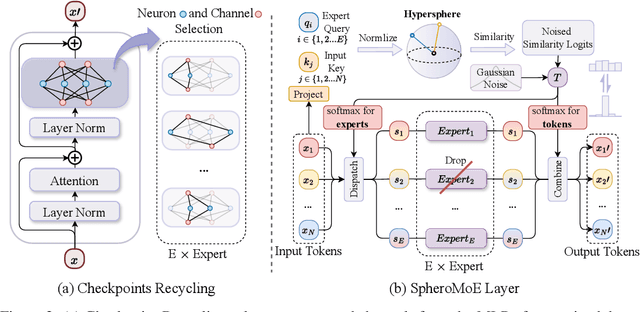Yuchao Chen
PA-CLIP: Enhancing Zero-Shot Anomaly Detection through Pseudo-Anomaly Awareness
Mar 03, 2025Abstract:In industrial anomaly detection (IAD), accurately identifying defects amidst diverse anomalies and under varying imaging conditions remains a significant challenge. Traditional approaches often struggle with high false-positive rates, frequently misclassifying normal shadows and surface deformations as defects, an issue that becomes particularly pronounced in products with complex and intricate surface features. To address these challenges, we introduce PA-CLIP, a zero-shot anomaly detection method that reduces background noise and enhances defect detection through a pseudo-anomaly-based framework. The proposed method integrates a multiscale feature aggregation strategy for capturing detailed global and local information, two memory banks for distinguishing background information, including normal patterns and pseudo-anomalies, from true anomaly features, and a decision-making module designed to minimize false positives caused by environmental variations while maintaining high defect sensitivity. Demonstrated on the MVTec AD and VisA datasets, PA-CLIP outperforms existing zero-shot methods, providing a robust solution for industrial defect detection.
MoE Jetpack: From Dense Checkpoints to Adaptive Mixture of Experts for Vision Tasks
Jun 07, 2024



Abstract:The sparsely activated mixture of experts (MoE) model presents a promising alternative to traditional densely activated (dense) models, enhancing both quality and computational efficiency. However, training MoE models from scratch demands extensive data and computational resources. Moreover, public repositories like timm mainly provide pre-trained dense checkpoints, lacking similar resources for MoE models, hindering their adoption. To bridge this gap, we introduce MoE Jetpack, an effective method for fine-tuning dense checkpoints into MoE models. MoE Jetpack incorporates two key techniques: (1) checkpoint recycling, which repurposes dense checkpoints as initial weights for MoE models, thereby accelerating convergence, enhancing accuracy, and alleviating the computational burden of pre-training; (2) hyperspherical adaptive MoE (SpheroMoE) layer, which optimizes the MoE architecture for better integration of dense checkpoints, enhancing fine-tuning performance. Our experiments on vision tasks demonstrate that MoE Jetpack significantly improves convergence speed and accuracy when fine-tuning dense checkpoints into MoE models. Our code will be publicly available at https://github.com/Adlith/MoE-Jetpack.
 Add to Chrome
Add to Chrome Add to Firefox
Add to Firefox Add to Edge
Add to Edge